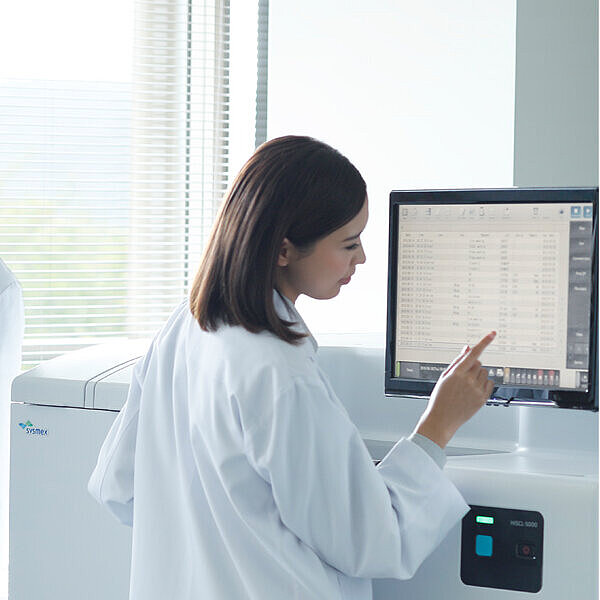From nightmares to optimism – what’s next in the fight against AMR
Interview
We conducted an interview with Dr med. Peter Keller, Deputy Head of Diagnostics at the Institute for Infectious Diseases at Universität Bern in Switzerland, about his experiences with AMR, how medicine has improved over the years and where we need to be cautious, as well as the effect of the current pandemic on AMR stewardship.
A lot has changed in the past 20 years. Most of us are on the internet for more hours of the day than we’re not, streaming services have overshadowed live TV and movie rentals, and self-driving cars now exist and are gaining popularity. Naturally, there have also been many medical advancements in the same time, but there’s something that has been looming behind us that we are now forced to take more seriously: antimicrobial resistance (AMR).
When Dr med. Peter Keller – Deputy Head of Diagnostics at the Institute for Infectious Diseases at Universität Bern in Switzerland – was studying in 2000, AMR was not a widely-known topic. The topic was glossed over in lectures and students were informed that they would encounter treatment failure in some cases, but the reasons behind it and the impact it could have were not highlighted. That’s why it was a bit of a shock to treat patients shortly after he started practicing:
“…And there I learned the dangers, the complications of antimicrobial resistance. It was a nightmare in some instances to treat these patients and also to see them die of these bacteria, which is really something we were not taught during our studies.”
It was then he realised that we might be on the path to losing some of our most powerful weapons against modern diseases.
Not so long ago, MRSA (methicillin-resistant Staphylococcus aureus) was a looming problem in hospital and senior home settings. There were times in 2010 when up to 25% of these infections were resistant to the first-line drug. There were many lessons learned from these hurdles and are valuable in the fight against AMR today.

What has improved and what still needs work
Although he can see the situation for what it is – a very dangerous one – Dr Keller still remains optimistic. He shared some details about promising studies and initiatives that are ongoing and are starting to show some progress. He also outlined one success story in the Netherlands, where the poultry industry was able to considerably reduce the rate of tetracycline (a common antibiotic) resistance, highlighting that interventions can be quite successful if done properly.1
We hear about some countries being at the forefront of progress when it comes to fighting resistant microbials, but we also hear about some regions that are lacking behind and perhaps even stoking the flames due to a lack of awareness and resources. Funding is needed to educate teams and implement programmes with the aim of lowering unnecessary antimicrobial consumption. “People with the education to use these substances wisely are not there,” says Dr Keller. “Teams have not been funded to help the hospitals to implement programmes to reduce the consumption of [antimicrobial] drugs. This is something that should be coordinated on an international level.”
Ways forward with a focus on the physician-patient relationship
One way in which Dr Keller thinks we can support the fight against AMR and lowering the consumption of antimicrobials unnecessarily is through improving the physician-patient relationship. It is important to manage expectations – many patients expect to leave their physician’s office with medication in hand, but sometimes leave disappointed if they are informed they most likely have a viral infection and have to manage it without prescription drugs. Another major step forward would be to equip physicians and laboratory personnel with rapid and reliable resistance detection methods with a fast turnaround time. Lastly, Dr Keller encourages simplifying things and using digital technology to our advantage, where there is potential to make sharing lab results quicker and easier.
When asked if he thinks it is the responsibility of an IVD company to research and provide faster solutions to support the fight against AMR, Dr Keller agreed:
We need experienced diagnostic companies with experienced laboratory background to develop such [faster] tests. It’s a very interesting and important field of development.
AMR vs a global pandemic
It has become clear that a sustained response to AMR is the best approach. Unfortunately, AMR – as well as many other issues – has taken a backseat during the current pandemic. Of course, we have all been handling the situation the best we can with the information at hand, but many implemented measures to curb AMR have suffered a lot. Dr Keller details how many physicians are trained that influenza patients often get a bacterial pneumonia infection in addition to the influenza virus. Consequently, they believed the same strategy would apply to SARS-CoV-2, therefore many of these patients have been treated with antibiotics as a preventative measure to avoid superinfections.
“Currently, some clinics have realised that antibiotics are not needed in most instances of proven COVID-19 and have adapted their regimens and if not, it should be done in the next months,” explains Dr Keller. On the other hand, AMR stewardship teams were heavily blocked over the past months to free up time and resources to fight COVID-19.
But has long-term damage to these AMR initiatives already been done?
Dr Keller explained that longstanding studies which measure the impact of AMR on ICUs (intensive care units) had to be stopped because the physicians and study nurses were no longer available, and that most centres stopped their clinical studies and focused on coronavirus studies only. “This is a huge negative impact on the scientific background of these AMR stewardship programmes,” mentions Dr Keller.
What is the takeaway message at the end of the day? Of course, it’s something easier said than done, but achievable nonetheless. We can’t lose sight of other important issues even during a pandemic because there could be major consequences. We need sustainable countermeasures that focus on awareness and education of the topic. As Dr Keller says, “It’s like the plane that’s in flight; it must fly under any condition.”




